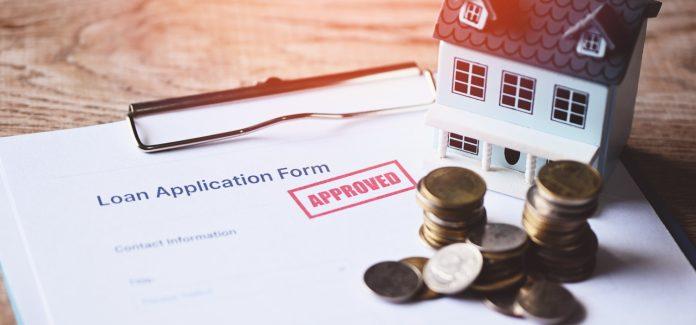Introduction:
Starting the process of creating your own house is an amazing opportunity. However, amidst the excitement, it’s crucial to navigate the financial aspects with prudence. One of the key components in financing a new home construction is securing a home construction loan. Before you dive into the application process, it’s essential to consider various factors to ensure a smooth and successful borrowing experience. In this comprehensive guide, we’ll delve into what you need to know before applying for a home construction loan.
Understanding Home Construction Loans:
A home construction loan is a type of financing specifically designed to fund the construction of a new home. Unlike traditional mortgages used for purchasing existing homes, construction loans typically have different terms and requirements. These loans are usually short-term, covering the period of construction, and are often converted into a traditional mortgage once the construction is complete.
Factors to Consider Before Applying:
Financial Preparedness:
Before applying for a home construction loan, assess your financial readiness. Consider factors such as your credit score, income stability, and existing debts. Lenders scrutinize these aspects closely to determine your eligibility and loan terms. Aim to improve your credit score if it’s less than stellar and ensure you have a stable income stream to comfortably manage loan repayments.
Budget and Cost Estimation:
Accurately estimating the total cost of your construction project is crucial. Create a detailed budget outlining all expenses, including land acquisition, permits, materials, labor, and contingency funds for unforeseen expenses. Work closely with builders and contractors to obtain realistic cost estimates. Knowing your budgetary constraints helps you determine the loan amount you need and ensures you don’t overextend financially.
Land Purchase or Ownership:
If you haven’t already secured a plot of land for construction, factor in the cost of land acquisition into your loan considerations. Some lenders may offer combined loans that cover both land purchase and construction costs, while others may require separate financing for land acquisition. Ensure legal aspects such as land ownership, zoning regulations, and environmental considerations are in order before proceeding with the loan application.
Down Payment Requirements:
Like traditional mortgages, home construction loans often require a down payment. The down payment amount can vary depending on factors such as lender requirements, your creditworthiness, and the loan-to-value ratio. Typically, down payments for construction loans range from 20% to 25% of the total project cost. Ensure you have sufficient funds set aside for the down payment to secure favourable loan terms.
Loan Types and Terms:
Home construction loans come in various types, each with its own set of terms and conditions. Two common types include construction-to-permanent loans, which seamlessly transition into a traditional mortgage after construction, and stand-alone construction loans, which require separate financing for the permanent mortgage. Compare the terms, interest rates, and repayment options offered by different lenders to choose the most suitable loan type for your needs.
Builder and Contractor Selection:
Selecting the right builder and contractors is instrumental in the success of your construction project. Choose experienced professionals with a proven track record of delivering quality work within budget and schedule constraints. Lenders may also have requirements regarding the qualifications and licensing of builders and contractors. Ensure clear communication and transparency with your chosen team to avoid delays and complications during the construction phase.
Construction Timeline and Draw Schedule:
Understanding the construction timeline and drawing schedule is essential for effective project management and loan disbursement. The draw schedule outlines the stages of construction at which funds will be released by the lender. Coordinate closely with your builder to align the draw schedule with project milestones and budgetary needs. Construction delays can impact loan disbursements and may incur additional costs, so strive to adhere to the agreed-upon timeline.
Contingency Planning:
No construction project is without its challenges, and having a contingency plan in place is paramount. Allocate a portion of your budget for unforeseen expenses and delays that may arise during the construction process. A contingency fund provides a financial buffer and ensures you’re prepared to handle unexpected circumstances without derailing the project or jeopardizing loan repayments.
Loan Application Process and Documentation:
The loan application process for a home construction loan can be more complex than traditional mortgages due to the unique nature of construction financing. Be prepared to provide extensive documentation, including detailed construction plans, cost estimates, builder contracts, permits, and financial statements. Work closely with your lender to ensure all requirements are met and the application process proceeds smoothly.
Post-Construction Plans:
Once your home construction is complete, consider your post-construction plans regarding occupancy, refinancing options, and long-term financial goals. Evaluate whether you plan to live in the newly constructed home or sell it, as this can influence your financing decisions. Explore refinancing options to transition from a construction loan to a permanent mortgage with favourable terms that align with your financial objectives.
Conclusion:
Applying for a home construction loan is a significant financial undertaking that requires careful consideration and planning. By evaluating factors such as financial readiness, budget estimation, loan types, and construction logistics, you can navigate the loan application process with confidence. Remember to collaborate closely with your builder, contractors, and lender to ensure a smooth and successful construction journey. With thorough preparation and attention to detail, you’ll be one step closer to turning your dream home into a reality.
